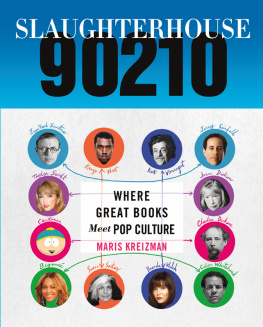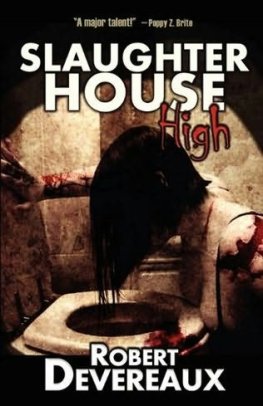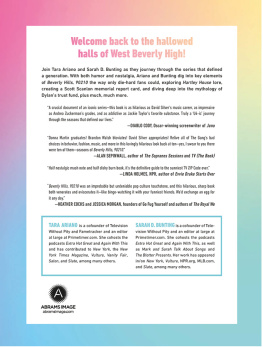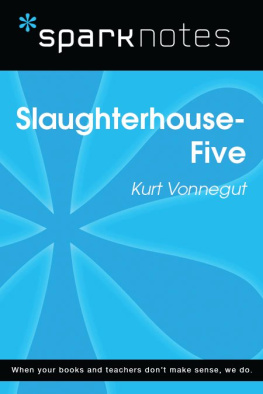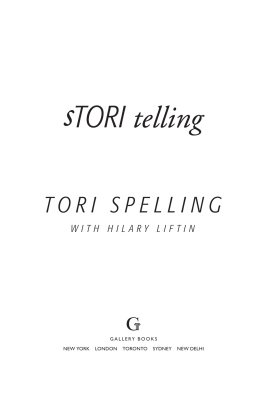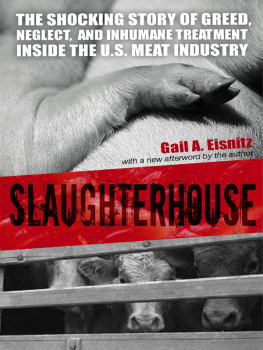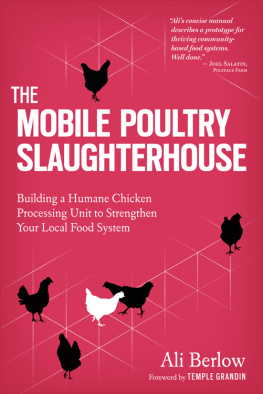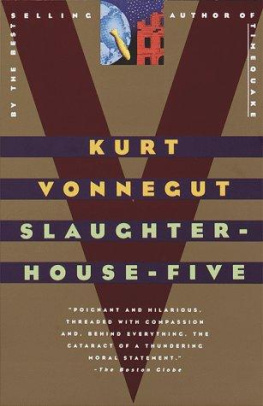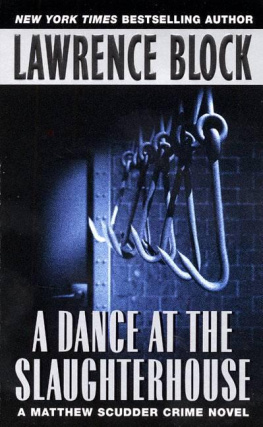Contents
Guide
SLAUGHTERHOUSE
90210
Maris Kreizman

The author and publisher have provided this e-book to you for your personal use only. You may not make this e-book publicly available in any way. Copyright infringement is against the law. If you believe the copy of this e-book you are reading infringes on the authors copyright, please notify the publisher at: http://us.macmillanusa.com/piracy.
To Mom and Dad with love and gratitude
I read for pleasure and that is the moment I learn the most.
Margaret Atwood
It all started with a poignant scene from the semiscripted show The Hills, as many great intellectual undertakings do. The heroine and moral center of the not-quite-reality show that ran on MTV from 2006 to 2010 and preceded the rise of Real Housewivesesque wealth-porn TV was Lauren Conrad, a mega-privileged California girl with tons of wonderful opportunities, a beautiful apartment, great hair, and really bad taste in boys and friends. The entire show had a fake, airbrushed glow about it, but Laurens emotions always seemed so real. She felt things. Theres a famous screenshot from The Hills that shows Conrad arguing with a friend over some petty yet dramatic grievance and crying the most perfect single black mascara tear.
As I watched that gorgeous tear fall in slow motion, I thought of a quote from a novel Id recently read: Never did anybody look so sad. Bitter and black, halfway down, in the darkness, in the shaft which ran from the sunlight to the depths, perhaps a tear formed; a tear fell; the waves swayed this way and that, received it, and were at rest. Never did anybody look so sad. Its an observation from Virginia Woolfs To the Lighthouse made by the matriarch of a large family about a young homesick maid in her service. Its a passing thought, a tiny vivid portrait in the midst of a much larger stream-of-consciousness narrative that flicks between topics like the remote control of an avid channel surfer. The impression of LCs (as shes known to her fans) angst struck me in a similar way. Click.
We all know the thrill of reading a great line that illuminates an idea weve sensed but were unable to articulate, that magical feeling when a piece of writing leads us to see the world with greater clarity or more wonder. Such epiphanies can be inspired by TV shows and pop songs and films as much as books, of course. Pop culture and literature are not mutually exclusive passions. In fact, they work in tandem. Media from every area of the spectrum can edify and influence us, and there are a zillion shades of gray within culturethere is so much fluidity between high and low. So of course Daria Morgendorffer, Whitney Houston, and Alex P. Keaton can inform our ways of thinking just as much as Sylvia Plath or James Baldwin ever could. The Fly Girls from In Living Color could be childhood inspirations just as much as Louisa May Alcotts March girls. Our brains can be equal parts George Eliot and George Costanza, Jean-Paul Sartre and Mark-Paul Gosselaar, both Jane Austens Emma and Cluelesss Cher Horowitz.
What a delight to discover, then, that one of the greatest living writers of our time, Lorrie Moore, could inadvertently explain the appeal of Americas Funniest Home Videos and Jackass: I have always felt that life is a series of personal humiliations relieved, occasionally, by the humiliations of others. Or that the antiheroes who populate so many of TVs most prestigious dramasOmar Little, Tony Soprano, Walter Whiteecho the sentiments of the narrator of P. G. Wodehouses 1906 novel, Love Among the Chickens: I am not always good and noble. I am the hero of this story, but I have my off moments.
Looking through the lens of literature, you might discover that Hemingway expresses heartache in The Sun Also Rises just as palpably as My So-Called Life does, or that you might like Daphne du Maurier if you are completely obsessed with the Hitchcockian nighttime soap Pretty Little Liars. You might find that Veronica Mars or Lisa Simpson are feminist icons just as much as Susan Sontag is, or that Orange Is the New Black is a natural successor to Russian epics by Tolstoy and Dostoyevsky, or that Leslie Knope of Parks and Recreation could have been a Jane Austen heroine.
Since 2009, Slaughterhouse 90210 has been celebrating the intersection of literature and pop culture. What started as a goofy mash-up designed to compare and contrast high and low culture to comedic effect (in retrospect, pairing F. Scott Fitzgerald with Jersey Shore in 2009 seems portentous of Snookis 2014 Gatsby-themed wedding) evolved into a larger, more diverse project that aims to inspire lovers of culture to binge read as much as they binge watch shows and films on Netflix. Great writing transcends time and place and is even more essential in our Internet-addled, DVR-addicted age than it ever was.

EVERYTHING WAS BEAUTIFUL AND NOTHING HURT.
Kurt Vonnegut,Slaughterhouse-Five
It is curious what patches of hardness and tenderness lie side by side in mens dispositions. I suppose he has some test by which he finds out whom Heaven cares for.
George Eliot, Middlemarch


Coherence and closure are deep human desires that are presently unfashionable. But they are always both frightening and enchantingly desirable. Falling in love, characteristically, combs the appearances of the word, and of the particular lovers history, out of a random tangle and into a coherent plot.
A. S. Byatt,Possession
Life is an endless recruiting of witnesses. It seems we need to be observed in our postures of extravagance or shame, we need attention paid to us. Our own memory is altogether too cherishing, which is the kindest thing I can say for it. Other accounts are required, other perspectives, but even so our most important ceremoniesbirth, love, and deathare secured by whomever and whatever is available. What chance, what caprice!
Carol Shields, The Stone Diaries


Above all, she is the girl who feels things, who has hung on to the freshness and pain of adolescence, the girl ever wounded, ever young.
Joan Didion,Slouching Towards Bethlehem

A mans subconscious self is not the ideal companion. It lurks for the greater part of his life in some dark den of its own, hidden away, and emerges only to taunt and deride and increase the misery of a miserable hour.

